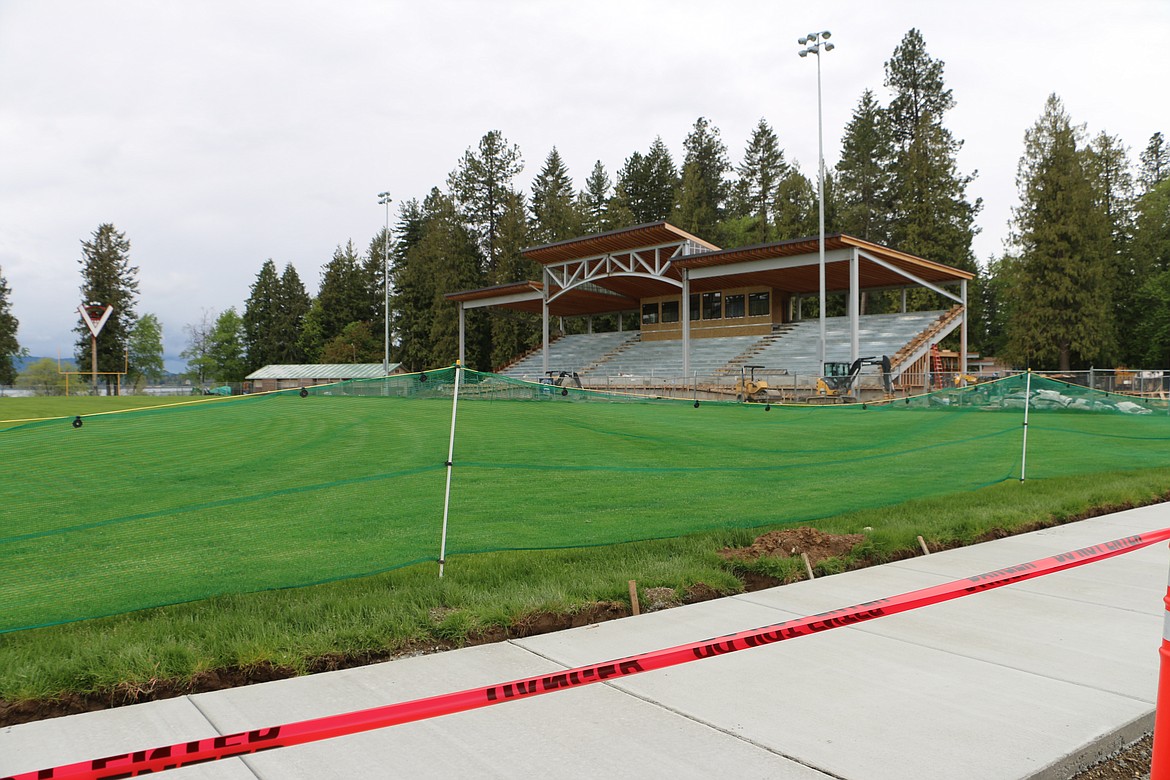Sandpoint continues field turf talk
SANDPOINT — Turf talk regarding War Memorial Field stalled out for about a year as other projects in the city took precedence.
That conversation continued Wednesday, however, during a workshop-style meeting at City Council.
Tom Sherry with SPVV Landscape Architects in Spokane returned with a draft report on the conditions of the field at Memorial Field, as well as three other parks in the city that are used for athletic events.
City Administrator Jennifer Stapleton said this past spring, a “significant number” of games and practices were canceled not only at Memorial Field, but at Great Northern, Centennial and Travers parks as well.
“The amount of precipitation we’ve had over the last year, particularly over the winter and into the spring, we ran into playability issues really across all of our fields,” Stapleton said.
Memorial Field is the top priority as it gets an average of 750 hours of use per year between the Festival at Sandpoint, events such as weddings and graduation, and sporting events, including football, soccer, baseball and lacrosse. The biggest issue, Sherry said, is when it comes time for football in the fall. Following the Festival in August, there is not enough time for the field to recover.
The options introduced by Sherry last year, specifically for Memorial Field, were high performance natural turf, artificial turf, or a combination of both, though the latter is not included in Sherry’s draft report.
The high performance natural turf option would include a subsurface drainage system, as well as a filtration system for nutrients from fertilizers, which currently drain directly into the Pend Oreille River.
The artificial turf is made from a natural cork product and would still include a subsurface drainage system, although it does not need a filtration system, since no fertilizer is used on artificial turf. Artificial turf would allow year-round use of the field, as even the snow could be removed for use in the winter.
With the issues in the spring across all of the fields, Stapleton said Sherry was asked to look at whether there was another option that would include improvements to Memorial Field, but also maximize playability across the city’s sports complex system.
The options in Sherry’s draft report include installing artificial turf at Memorial Field with no upgrades to other parks as the cost is estimated at more than $2 million. The second option includes installing natural turf at Memorial Field with complete reconstruction of the field, and then phasing field improvements across all of the city’s fields at Great Northern, Centennial and Travers parks as well.
Natural turf is the least expensive option to install and maintain, Sherry said. The cost of installation at Memorial Field is $1,041,210 with a per-year maintenance cost of $194,043.
If council ultimately chooses the second option, the first phase would be the Memorial Field improvements. The second phase would include drainage improvements to Travers and Centennial, with an estimated cost of $941,969. For the third phase, work would connect the Travers/Centennial drain system to a new drain system at Great Northern. The estimated cost of the Great Northern improvements is $544,916.
Memorial Field improvements are funded through a 1-percent, voter-approved local option tax, which sunsets after five years. In the two-and-a-half years since it was approved, Stapleton said the city has collected $3,034,565, and $3,518,725 in expenses have been incurred.
The first priority outlined on the ballot included the Memorial Field grandstand project, which is substantially completed, Stapleton said, with a few punch list items to go. The second priority is to replace drainage and field surface at Memorial Field, with the third priority going to infrastructure at Memorial Field. The fourth priority would allow improvements at other city parks.
Availability of funds for whichever option is chosen is estimated at $2.6 million. Stapleton said it is a conservative estimate, taking into consideration the possible loss of grocery tax revenue if it passes through the Legislature next session.
A decision will not be made by City Council on the turf until at least September, but no later than December, to allow time for public comment and ongoing discussion regarding the options, Stapleton said.
Mary Malone can be reached by email by mmalone @bonnercountydailybee.com and follow her on Twitter @MaryDailyBee.

